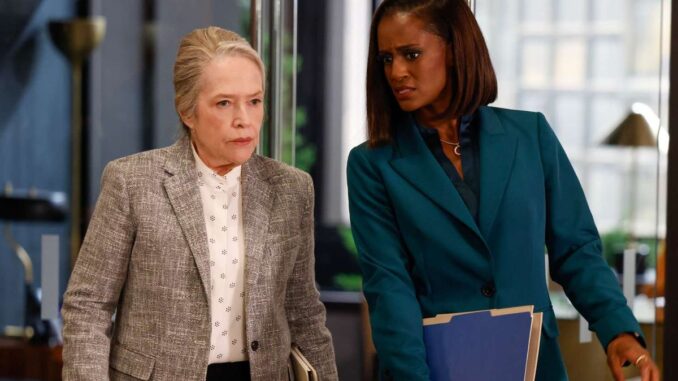
The entertainment industry, with its glossy veneer of red carpets and award ceremonies, often masks a tangled web of negotiations, creative differences, and personal relationships. When disputes arise, particularly involving casting decisions, the fallout can be intensely public and intensely personal. The situation surrounding Leah Lewis’s initial involvement with the reboot of “Matlock” and the subsequent drama surrounding her departure, often referenced as “Leah Lewis Speaks Out After Matlock Drama And Inside the Real-Life Fallout md07,” offers a potent illustration of this delicate intersection. It’s a story about broken promises, the pressures faced by young actors, and the difficult navigation of a career in the spotlight.
At its core, the narrative revolves around the promise of opportunity. Lewis, a rising star known for her work in projects like “Nancy Drew” and “The Half of It,” was initially cast in a prominent role in the “Matlock” reboot. This represented a significant step forward in her career, offering the potential for wider recognition and long-term stability. For a young actor, securing a series regular role on a network television show is akin to winning the lottery. It provides a platform, a steady paycheck, and the chance to hone one’s craft over an extended period. However, the initial excitement soon gave way to uncertainty as creative changes and production delays began to plague the project.
The details surrounding Lewis’s departure, as revealed through her own statements and industry reports, paint a picture of miscommunication and shifting priorities. While the specifics often remain shrouded in non-disclosure agreements and carefully worded press releases, the implication is that the role initially envisioned for her underwent significant revisions, ultimately diminishing its importance and potentially clashing with her own artistic goals. This is a common, albeit frustrating, occurrence in the industry. Pilot episodes are often subject to rigorous testing and feedback, leading to rewrites, recasting, and even complete overhauls of the original concept.
The impact of this “Matlock” drama extended beyond the professional realm, impacting Lewis on a personal level. The initial disappointment of losing the role, coupled with the public scrutiny and speculation that followed, undoubtedly took a toll. Navigating the treacherous waters of social media and the 24/7 news cycle can be particularly challenging for young actors, who are often thrust into the spotlight without the benefit of years of experience. The pressure to maintain a positive image, to avoid saying the wrong thing, and to manage the constant flow of opinions and criticisms can be overwhelming.
Moreover, the “Matlock” situation underscores the power dynamics inherent in the entertainment industry. Established studios and production companies often hold the upper hand in negotiations with individual actors, particularly those who are still early in their careers. This imbalance can lead to situations where actors feel pressured to accept roles or agree to terms that may not be in their best interests, simply to avoid damaging their reputation or jeopardizing future opportunities. While agents and managers play a crucial role in advocating for their clients, the ultimate decision often rests with the studio.
The response to the “Matlock” drama also highlights the importance of transparency and communication within the industry. When actors are left in the dark about the reasons behind casting changes or creative decisions, it can breed mistrust and resentment. Clear and honest communication, even in difficult situations, can help to mitigate the damage and preserve professional relationships. In Lewis’s case, her willingness to speak out about her experience, while carefully navigating legal constraints, allowed her to control the narrative and maintain her integrity in the eyes of her fans and colleagues.
Ultimately, the “Leah Lewis Speaks Out After Matlock Drama” incident serves as a cautionary tale about the complexities and challenges of pursuing a career in acting. It’s a reminder that the industry is not always as glamorous as it appears, and that success often comes at a price. However, it also underscores the resilience and determination of young actors like Lewis, who are willing to navigate these obstacles with grace and integrity, ultimately shaping their own destinies and leaving their mark on the entertainment landscape. The experience, while undoubtedly painful, likely provided valuable lessons in self-advocacy, negotiation, and the importance of staying true to one’s artistic vision, lessons that will serve her well as she continues to navigate the often-turbulent waters of Hollywood. The situation, in the end, became a catalyst for growth and a testament to her unwavering commitment to her craft.
